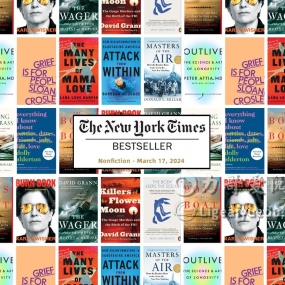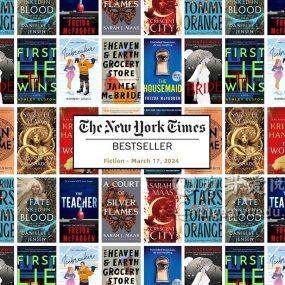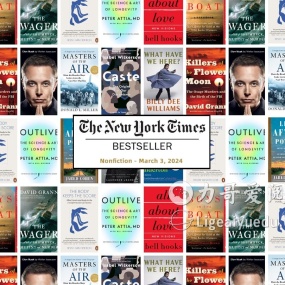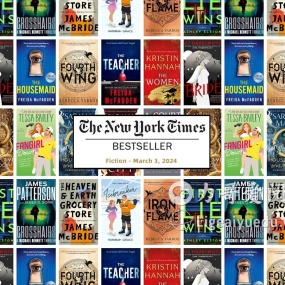

失败是因为选择错误!这是第一本运用脑神经科学的惊人发现指导我们做出正确决定的书。
自柏拉图以来,哲学家就认为决定过程要么是理性的、要么是感性的。也就是说,我们要么仔细慎重地思考,要么“眼睛一眨”凭直觉做决定。
当科学家运用神经科学的最新工具打开大脑黑箱时,他们发现大脑并不是这样工作的。最好的决策是精心调和理智和情感的产物——具体怎么调和,取决于情境。例如,买房子时,最好让潜意识仔细考虑众多变量。但是选择股票时,直觉则会让我们误入歧途。诀窍在于知道什么时候该用什么脑区。而要做到这一点,我们需要更加努力(更加睿智)地思考自己是怎么思考的。
通过神经科学的前沿研究以及真实世界众多“决策者”——从飞行员到对冲基金投资者,从连环杀手到扑克选手——案例,乔纳•莱勒用我们所需的工具将我们武装起来。
莱勒还展示了一些人是怎么利用这门新知识制作更好的电视节目、赢得更多场足球比赛以及加强军事情报部门建设的。他的目标是回答任何人——从CEO到消防员——都感兴趣的两个问题:人脑是如何决策的?我们怎样做出更好的决定?在这本书里,会频繁出现“神”这个词。然而我并不是一个宗教家,也没有什么宗教信仰,当然也没有打算入教。我只是喜欢“神”这个词的发音而已。
当你走在路上的时候,一辆卡车忽然冲到面前,你可能会大叫“神啊”。在这样的语境里,我认为“神”也没有什么特殊的意义吧。
因此,我所说的“神”也没有特定的含义,只是因为喜欢,所以用在了这本书里。
我只是希望那些由于找不回人类的本质而痛苦的人们,能够回想起自己所失去的东西。而神的作用就在于此,我只不过在书中借用了一下而已。
那么,我所说的人类的本质是什么呢?
人类其实是一种一边为打破界限而惊喜,一边生存的动物。
The first book to use the unexpected discoveries of neuroscience to help us make the best decisions.
Since Plato, philosophers have described the decision-making process as either rational or emotional: we carefully deliberate, or we “blink” and go with our gut. But as scientists break open the mind’s black box with the latest tools of neuroscience, they’re discovering that this is not how the mind works. Our best decisions are a finely tuned blend of both feeling and reason—and the precise mix depends on the situation. When buying a house, for example, it’s best to let our unconscious mull over the many variables. But when we’re picking a stock, intuition often leads us astray. The trick is to determine when to use the different parts of the brain, and to do this, we need to think harder (and smarter) about how we think.
Jonah Lehrer arms us with the tools we need, drawing on cutting-edge research as well as the real-world experiences of a wide range of “deciders”—from airplane pilots and hedge fund investors to serial killers and poker players.
Lehrer shows how people are taking advantage of the new science to make better television shows, win more football games, and improve military intelligence. His goal is to answer two questions that are of interest to just about anyone, from CEOs to firefighters: How does the human mind make decisions? And how can we make those decisions better?

本书取材于作者霍华德·马克斯著名的投资备忘录,这些备忘录是包括巴菲特在内的全球专业投资者推崇备至的。全新升级版除了饱含马克斯的投资智慧之外,新加入了4位知名投资专家及教育家的评论、看法及不同意见,分别是:
- 克里斯托弗·戴维斯:著名基金经理,服务于戴维斯投资顾问公司,以奉行价值投资及进行严格的行业筛选著称。
- 乔尔·格林布拉特:哥谭资本公司创始人,投资类畅销书《股市稳赚》的作者,其以对非理性投资行为的敏锐洞察而大获成功。
- 保罗·约翰逊:哥伦比亚大学商学院副教授,善于巧妙地将市场智慧融入他的证券分析和价值投资课程。
- 塞思·卡拉曼:包普斯特集团总裁,著有重要的投资类经典《安全边际》。
诸位专家就“第二层次思维”、价格与价值的关系、耐心等待机会、防御性投资等概念发表了精彩的真知灼见。全新升级版新增一章来探讨合理预期的重要性,作者本人也加入了评论,扩充了原先讨论的主题。同时,邀请了被《纽约时报》称为“华尔街大师中的翘楚”的布鲁斯·格林沃尔德撰写前言,就价值投资、生产率、信息经济等概念娓娓道来。
“This is that rarity, a useful book.”–Warren Buffett
Howard Marks, the chairman and cofounder of Oaktree Capital Management, is renowned for his insightful assessments of market opportunity and risk. After four decades spent ascending to the top of the investment management profession, he is today sought out by the world’s leading value investors, and his client memos brim with insightful commentary and a time-tested, fundamental philosophy. Now for the first time, all readers can benefit from Marks’s wisdom, concentrated into a single volume that speaks to both the amateur and seasoned investor.
Informed by a lifetime of experience and study, The Most Important Thing explains the keys to successful investment and the pitfalls that can destroy capital or ruin a career. Utilizing passages from his memos to illustrate his ideas, Marks teaches by example, detailing the development of an investment philosophy that fully acknowledges the complexities of investing and the perils of the financial world. Brilliantly applying insight to today’s volatile markets, Marks offers a volume that is part memoir, part creed, with a number of broad takeaways.
Marks expounds on such concepts as “second-level thinking,” the price/value relationship, patient opportunism, and defensive investing. Frankly and honestly assessing his own decisions–and occasional missteps–he provides valuable lessons for critical thinking, risk assessment, and investment strategy. Encouraging investors to be “contrarian,” Marks wisely judges market cycles and achieves returns through aggressive yet measured action. Which element is the most essential? Successful investing requires thoughtful attention to many separate aspects, and each of Marks’s subjects proves to be the most important thing.

在这本书中,作者提出了一个看似简单的问题:什么是或者应该是,经验在管理中,尤其是在组织中进行管理应该扮演的角色?民间智慧对于经验的观点似乎分为两派,一方面,经验被人们视为最好的老师。另一方面,经验又被称其为傻瓜老师,对于那些不能管理或者不愿意管理的人来说,这是他们快速取得知识得最有效的途径。这种分歧也就表明了对于从经验中管理是长期以来管理学家们孜孜不倦,一直在思考的重要议题。本书涵盖了组织中(包括具体的个人)凭借经验来解决他们意料之外的问题,并由此进行生存,改进和发展。
In The Ambiguities of Experience, James G. March asks a deceptively simple question: What is, or should be, the role of experience in creating intelligence, particularly in organizations? Folk wisdom both trumpets the significance of experience and warns of its inadequacies. On one hand, experience is described as the best teacher. On the other hand, experience is described as the teacher of fools, of those unable or unwilling to learn from accumulated knowledge or the teaching of experts. The disagreement between those folk aphorisms reflects profound questions about the human pursuit of intelligence through learning from experience that have long confronted philosophers and social scientists. This book considers the unexpected problems organizations (and the individuals in them) face when they rely on experience to adapt, improve, and survive.
While acknowledging the power of learning from experience and the extensive use of experience as a basis for adaptation and for constructing stories and models of history, this book examines the problems with such learning. March argues that although individuals and organizations are eager to derive intelligence from experience, the inferences stemming from that eagerness are often misguided. The problems lie partly in errors in how people think, but even more so in properties of experience that confound learning from it. “Experience,” March concludes, “may possibly be the best teacher, but it is not a particularly good teacher.”




